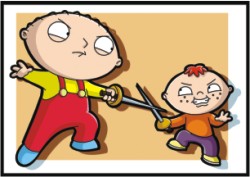
|
Home |
Issues | The Daily Star
Home
|
|
|
The glass divide On one side is a man. His right hand is placed firmly on the glass, the coarse veins prominent beneath the dark skin as if the blood flowing within was tangible. Each of his fingertips is placed against the ones on the other side. He looks through the glass. He sees the object of his affections, in an animated backdrop of a chaotic world, submerged in a constant phantasmagoria. He sees the woman. But amidst the chaos she constantly stands in front of the glass, with her left hand tracing his right, reciprocating. He stares and he only wants to feel more. He keeps wondering why and how long. On the other side is a woman. Her left hand is placed gracefully on the glass, the smooth luminous white skin not belying the warmth underneath. Each of her fingertips is placed against the ones on the other side. She looks through the glass. She sees the object of her expectations, in an animated backdrop of a chaotic world, submerged in a constant phantasmagoria. She sees the man. But amidst the chaos he constantly stands in front of the glass, with his right hand tracing her left, reciprocating. She stares and she only wants to feel more. She keeps wondering why and how long. They both hold their grounds. Neither takes off the hand in fear of losing the other into the depths of the bedlam behind. The clear icy sheet of glass fetters them from touching. If only they touched they would know for certain that which they are staring at is not just a vision but a reality as well. Seeing is believing, but only partly in this case, the unheard and the unfelt make for misgivings. But they both wish to know if that which they see on the other side is true or not. They both wish to know if the longing is real or just a recherché. But they both hold their grounds. For in order to know that one unknown either one must take the risk of breaking the glass not only injuring self but also facing what could either be true or a charade with a compromised dignity. Pangs of doubt and unuttered questions run through their minds. So they both hold their grounds, longingly gazing. He wishes her to be the one and she wishes him to break the glass. For if only they could touch each other they would know for certain what it was they were staring at. But neither could muster the courage to break the glass. The glass, a lifeless material sometimes referred to as vanity and sometimes considered to be true, was the only obstruction between them. It is easier to live in blissful ignorance than to shed the disguise and reach for something that could slip away. So they keep their hands pressed on either side of the glass pane, staring into each other intently, forever and after. By Wally Siblings - Can't live with 'em, can't live without 'em An RS reader sent in this in reference to our article  Even though older siblings can be unbearably annoying sometimes, they do tend to spice up our lives in one-way or the other. I cannot disagree (even though I would like to) that they are always there to protect us from whatever it is that our older siblings think we need protection from. One of those things would be 'jharis' from our parents. However, this topic is controversial. In many cases, it could be the other way around. Sometimes the older ones, to get their own behinds out of trouble, pull us into their mess (which is definitely not a fun situation to be in). Even though older siblings can be unbearably annoying sometimes, they do tend to spice up our lives in one-way or the other. I cannot disagree (even though I would like to) that they are always there to protect us from whatever it is that our older siblings think we need protection from. One of those things would be 'jharis' from our parents. However, this topic is controversial. In many cases, it could be the other way around. Sometimes the older ones, to get their own behinds out of trouble, pull us into their mess (which is definitely not a fun situation to be in).
In reminiscence, I see my older brother (after breaking my moms crystal vase into a million pieces), pointing towards an innocent little me. Unaware of the critical situation, my face lights up with the biggest and brightest smile anyone has ever witnessed. Inevitably, what happens next? I presume I don't need to spell it out. Let me just put it this way, my mom was not very ecstatic about my smile. Nonetheless, I would still prefer having an older sibling or perhaps siblings. They somehow manage to make our lives not so boring. I definitely agree a 100% that they have a natural tendency to poke their noses in our business, but I also realize that it is for our own good that they do what they do. Since I am sandwiched in the middle, with an older sibling and a younger one, I understand what it feels like to be bossed around, and to be able to boss around. The latter is undoubtedly way more amusing (trust me on that); I have to confess, once in a while (as in 'always' times infinite). I do enjoy bossing around and messing with my younger brother. He most certainly does not feel the same way though. Now I move on to my second (and hopefully the last) confession, which is, sometimes, ticking my little brother off feels tremendously stress relieving. I realize it sounds awful but it is a fact. I hope you are not raising your eyebrows while reading this because I know that you, older siblings out there, feel pretty much the same on the inside. All in all, what I tried to say in a few words is that I am truly glad to have siblings. I thank them for always making an effort to energize me whenever I felt blue, for making me laugh (even at my own expense), for having their (invisible) antennas on the look out 24/7 to keep an eye on what I have been up to, for saving me from the so-called wrath of the parents, for all the help at times of need, for lending an ear at times of frustration, and for just making my life much simpler and more meaningful. So today, to all the siblings out there, I salute you! By Shahinta Bhuiyan Book review The cider house rules John Irving  A story about an orphan, a doctor, an orphanage and an apple farm, on the outset, even just looking at the settings, John Irving provides a piquing story that interests the mind. A story about an orphan, a doctor, an orphanage and an apple farm, on the outset, even just looking at the settings, John Irving provides a piquing story that interests the mind.
Meet Dr. Wilbur Larch, founder of the orphanage in St Cloud's, an abandoned logging town. In this desolate setting, the orphanage happens to comprise of the town's population. And here at this orphanage is a boy who goes by the name of Homer Wells. Adopted three times and returning on all counts, he becomes the resident orphan who everyone starts loving as a child, even the reluctant Dr. Larch. The orphanage though, hides it secrets. Dr. Larch, a doctor who delivers unwanted babies and takes care of them in the orphanage, until adoption, is also a practitioner of the Devil's work, i.e. abortion, which at that time, was illegal (the book's setting is the early 1900s and WWII). With this little secret, the orphanage lives in St Cloud's, with Homer Wells growing up to be a young man and the good Doctor's apprentice. Although he is a good doctor and proves himself in a crisis, Homer refuses to perform abortions, which infuriates Dr. Larch. Just before Homer turns twenty, a young couple, Wally Worthington and Candy Kendall make their way to the orphanage, in need of an abortion. Homer instantly falls in love with Candy while the couple takes a huge liking to the silent, gaunt, youth and doctor's assistant. Wally is the son of wealthy apple farmers while Candy is the daughter of a well of mechanic/lobster farmer. Thrown into this is Homer's girlfriend Melony, another orphan who never got adopted (not after a few disastrous attempts). After witnessing Homer leave, Melony embarks on a determined search to find out Homer's whereabouts and face him for a promise he broke. As fate would have it, Wally suggests that he could donate some baby apple trees to plant on the hill overlooking orphanage. Agreeing, Homer decides to go fetch the trees with Wally and Candy. Unbeknownst to all but Dr. Larch, this would the time that Homer would truly leave the orphanage. In terms of story, rarely does such an epic comes to the surface, and Irving blends a believable setting with human characters that resemble their real life counter parts in an uncanny way. Homer, with his introduction to society dissects it unknowingly in order to understand it more. And through these two characters the society of today and yesteryears are shown in their advantages and disadvantages. A story of love, first that which is forced upon by circumstances and then that which flourishes towards another and then towards family. Irving, with a subtle touch of humor makes this book not only an enjoyable read, but also prompts the reader to think about reform, and how it can be achieved, with logic or with the heart? By Tareq Adnan |
|
| home
| Issues | The Daily Star Home © 2007 The Daily Star | |